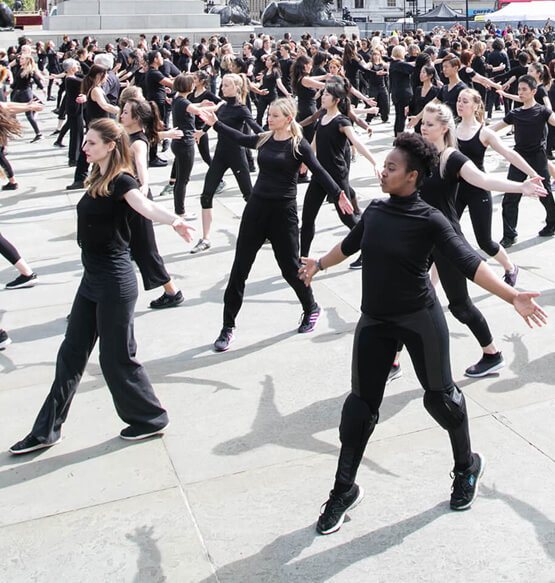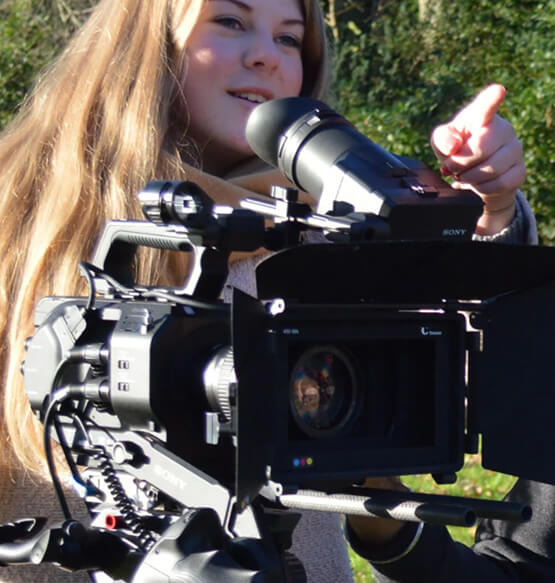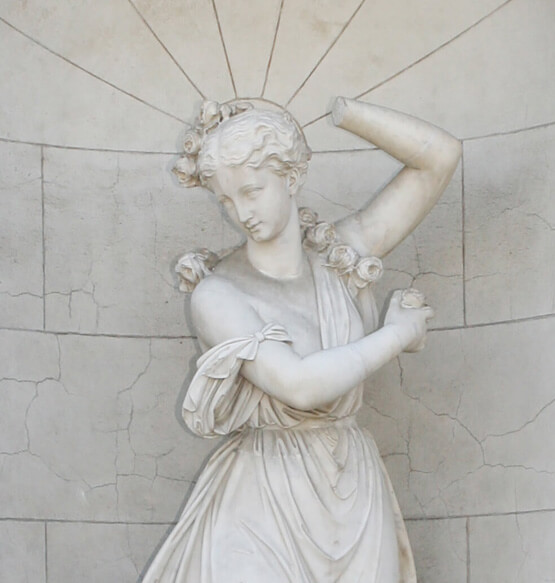You'll need:
112–128 UCAS points (or equivalent)
Foundation Year: 64–80 UCAS points (or equivalent)
International Foundation Pathway:
64 UCAS (or equivalent)
IELTS: 5.5
UCAS Code:
VQ31
VQ30 (If choosing Foundation Year)
Start date(s):
September 2026
If you love big stories, bold ideas, and discovering how the past shapes the world we live in, the BA History and English at Roehampton is your perfect degree.
You’ll explore two powerful subjects together, learning how real events inspire literature, and how books, plays, and poems can reshape history.
You’ll explore postcolonial narratives and Cold War conflicts, the streets of London in literature, Shakespeare in the modern world, and the global forces that shape our lives today. Along the way, you’ll build the skills to question what you read, challenge dominant narratives, and understand voices that history overlooks.
With hands-on projects, creative assessments, and the completion of your own independent research in your final year, this degree is designed to help you grow as a thinker, communicator, and creator, ready for whatever comes next.
Did you know?
Roehampton has been ranked 11th best in the UK for History for excellent student support, and top 5 for English in London (The Guardian League Table 2024).
Top modern university in London in History
(Complete University Guide 2025)

Ranked 12th best History programme in the UK
Guardian League Table 2024

History ranked 1st in London for Academic Support
National Student Survey 2024

Modules
This module introduces you to the degree-level study of English Literature, with a particular focus on literary history and notions of literary value, establishing a dialogue between landmark ‘canonical’ texts and texts written by or representing people marginalised from traditional histories and judgements of literary value (judgements often shaped by power relations based on social class, race and ethnicity, nationality, religion, gender, and/or sexuality). The module will empower you to ask vital questions about literature and literary criticism: Who gets to decide what literary value is, and how do traditional notions of literary history and value marginalise and silence other kinds of writers and writing? You will be introduced to varied critical approaches to the study of literature, and to digital resources for literary studies. Transition and writing skills are developed by the embedding of a number of specialist sessions on, for example, understanding what lecturers mean when they say ‘read X text’, essay writing, structuring an argument and writing plain English.
This module introduces you to the core skills and essential approaches involved in the practice of history. It traces the evolution of modern historiography, from the ‘Rankean revolution’ of the nineteenth century, through to the interwar impact of the Annales School, Marxist narratives, and the emergence of social, gender and postcolonial history in the mid twentieth century. Crucially, the module demonstrates that history is never ‘done’; we explore cutting-edge developments in terms of emotions, Black, Queer, disability and environmental histories; engage with prevailing ‘think pieces’ about best historical practice; and reflect on how contemporary events such as the Black Lives Matter campaign have galvanised efforts to pen a more inclusive account of the past. In the process, you are introduced to influential historians and a range of methodological approaches that will inform the rest of the History programme. By working closely with secondary sources, you will practice identifying an argument, trace scholarly debates and develop your own academic writing and presentation skills. Moreover, the module also highlights the ‘real world’ impact of major historiographical interventions e.g. how Queer History has helped heritage sites reconfigure the stories they present to the public. This culminates in an end-of-term field trip where you can explore shifting interpretations within a museum setting.
The word ‘Lab’ in the title reflects this module’s role as a space for you to learn and experiment with new ideas and study techniques as you ease into their degree. Accordingly, workshops will inculcate vital study skills (effective notetaking, referencing, reading comprehension, time management etc), and embed a ‘long induction’ to Roehampton, including various ‘check-in points’ where you will reflect on how the transition to University study is going. This module provides the essential building blocks for the rest of the degree programme.
This module provides an understanding of modern British society and Britain’s place in the world. Its focus is upon the Second Elizabethan age, beginning with how Britain developed a remarkable political consensus in the three decades after the end of Second World War and Atlee’s victory over Churchill at the polls. The middle section of the course considers the revolution in the Conservative party in the mid 1970s, as Margaret Thatcher confronted the “wets” (i.e. one-nation Conservatives), followed by a series of battles after 1979 between the Conservative governments and powerful interests and institutions within British society, most notably the Trade Unions, in turn triggering divisions within the Labour Party. The course then considers whether a new consensus arose, combining a pro free-market approach with support for Europe and more interventionist military actions, before turning to consider the impact of Brexit upon consensus. The module enables you to understand what Britain is today, and the tensions – social, political and diplomatic - that have shaped its development, and whether both post-War consensuses are undergoing the final stages of destruction in the aftermath of Brexit and the divisions it continues to foster.
As a spring module, it is complimentary to Level 4 spring module, ‘Political Concepts’, in which the themes of democracy, citizenship, liberty and equality are introduced, and in terms of its chronological coverage is aligned with ‘American Civil Rights from Truman to Trum’. ‘Britain from the Blitz to Brexit’ also provides a pathway to level 5 module on ‘Inequality in the City’, and level 6 module ‘Radical Cities. Revolution and Resistance in London and Paris’. Each of these modules has complimentary coverage so that duplication is avoided, with students furthering their skills and knowledge at each level.
This module introduces you to chiefly literary but also film depictions of London, one of the most multicultural cities in the world. Through the study of cultural texts by artists of different ethnic backgrounds, the module will promote equity, diversity, and inclusion as well as a global engagement with the city’s history and its depiction across media, genres and styles. This module will be relevant to home as well as international you, both of whom will be introduced to London as a literary and cultural experience. It will also develop you’ professional skills, with options to take critical or creative forms of assessment. The module’s learning will be complemented by a field trip to the Museum of London / Museum of London (Docklands) to extend the you’ knowledge of the city’s global maritime connections, which will be key to their understanding of the city’s role in commerce, Empire, and the slave trade.
These are the current planned modules on this course and may be subject to change.
This interdisciplinary module draws on topics from across the Humanities, with a focus on the relationship between the literature of the nineteenth century, and the experience of living in a period of rapid and unprecedented change, such as the invention of new technologies (steam locomotion, telegraphy, mass production, anaesthetic), and new structures and institutions (schools & universities, public libraries, newspapers, political parties, the post office, the police, workhouses, hospitals, asylums, sports clubs and mutual improvement societies). The module will also include a field trip to a location in central London, such as the Old Operating Theatre or Hunterian Museum of anatomy and pathology, the Ragged School Museum, the Foundling Museum or Tate Britain.
In this module students will examine how modern Latin America was forged through European invasion and colonization, indigenous resistance and African slavery, and the famous Wars of Liberation. Progressing through the 19th and 20th centuries they will examine how power has been challenged and changed hands up to the present day through popular uprisings, military coups, and political transformations.
The module begins with the experiences and voices of the indigenous people, followed by a longue durée analysis of the impact of the horrors of slavery. This leads into a wider examination of the context of Iberian, British and American colonialism, and how indigenous experiences of contact with European peoples changed across time and space. Through this module students will gain expertise in how European colonialism and institutions such as the Roman Catholic Church and European monarchies have shaped South America and the wider Global South. The module also considers how indigenous, indentured, and slave communities continued sustain violent and non-violent strategies of resistance, firstly, against different forms of authoritarianism, and, secondly, against extractive processes, linked to global capitalism (and liberalism), which have fundamentally altered ecologies and landscapes. The module also engages with the impact and reframing of global political movements within the continent. These range from the incubation and adaption of various strands of fascism, to Latin America’s critical role in sustaining various international communist movements.
The module has contemporary relevance. Students will familiarize themselves with thinkers, writers, and political figures whose ideas shaped the globe, from Castro and Che Guevera to Garcia Marquez and Borges, and will thus engage with ideas which shape the world of today. Students consider the long-lasting impact of a violent history of revolutions, coups, and warfare across the continent, and the influence of USA upon Latin American politics, extending to the rise of Jair Bolsonaro and Javier Milei in Brazil and Argentina respectively. Through this module students will gain an understanding of the complex history of Latin America, and the role the continent continues to play in world affairs today.
At level 4 students will in ‘Political Concepts. Ideas in Context’ power, democracy and freedom and hence will be able to apply these models to a Latin American context. The module also had cross-overs with its companion level 5 module, the Politics of Partition. Britain, Ireland and the Middle East’, and to the level 6 module on ‘Boling Points. Crisis and Conflict in the Cold War’.
This module builds on the introduction to studies of both period and genre in HE4 to examine a diverse range of modern and contemporary literature and media. It expands and refines your understanding of modern writing by examining a range of literary texts and media, examining the roots of modernist, postwar and contemporary literature and media in the technological innovations and key political and cultural events from the Great War to the present. The module also focuses on genre fictions, exploring theoretical approaches to the study of a range of different genres (e.g. horror fiction, spy fiction, gothic and horror fiction, social issue fiction, speculative fiction, superhero narratives) across a number of forms (e.g. prose narrative, graphic novel, film). The module examines the ways in which genre is used as a means of literary classification and explores the political ideation behind a number of popular generic forms. The module prepares you for further academic and professional work, emphasising critical analysis, creative thinking, and the ability to engage with complex global issues.
This module examines the origins of contentious the political and ethnic divides in Ireland and the Middle East which continue to shape world affairs. Comparing these regions through the lens of Britain’s changing role, you will also develop an understanding of how conflict overseas impacted British politics and culture domestically.
Beginning with the Irish War of Independence, the Anglo-Irish Treaty, and the ensuing Irish Civil War, you will examine how partition of the island of Ireland into Northern Ireland and the Irish Free State reflected both historic divisions between Nationalist and Unionist communities and contemporary political manoeuvring in the corridors of power. You will have the opportunity to contrast the experiences of people in post-conflict Ireland in 1923 with the inhabitants of the newly established British Mandatory Palestine, and the issues faced by its communities over the subsequent decades. Exploring the impact of population transfers, religious and political extremism, the Second World War and the Arab-Israeli War and First Nakba, you will gain new insights into a relatively familiar period of the 20th century. Examining writings and other cultural production from sources as varied as IRA guerillas, Jewish migrants who undertook the Third Aliyah, the female organisers of Arab Women’s Congress, and British soldiers who served in both Ireland and Mandatory Palestine, you will engage with a range of perspectives. Reading music, poetry, and philosophy produced by those experiencing political changes will afford you a glimpse into how societies in transition coped with turbulent historical circumstances and the varied roles played by the British government and people in shaping them. As they consider historical attempts at resolving these conflicts, such as the Sunningdale Agreement and the Camp David Accords, you will reflect on the complexities of meditating between different communities, as well as on the continued relevance of such processes in pursuit of peace into the present day.
This level 5 autumn module will enable you to deploy their understanding of themes such as citizenship, democracy and nationhood explored in the previous year’s level 4 smodule ‘Political Concepts’ in a relevant historical context. Engagement with the history of civil rights, especially in the USA in the late 20th century developed in level 4, is also built upon by examining the specific contexts of the Northern Ireland Civil Rights movement and the struggle for a two-state solution in Israel-Palestine. You will extend their understandings of debates over fundamental rights to new geographical and historical contexts. Specific and detailed engagement with the Troubles, and Irish history more broadly in the 20th century, will expand on familiarity acquired during Week 9 of Level 4 module Britain from Blitz to Brexit addressing the Troubles up to the Good Friday Agreement, affording you earlier historical context and a more nuanced understanding of the global scope of the conflict. The module makes connections with international solidarity efforts between various self-identified ‘liberation struggles’ in the complimentary level 5 on ‘Revolutions and Authoritarianism in Modern Latin America’, and particularly the example provided by the Cuban Revolution to Irish and Palestinian revolutionaries. This will acquaint you with a key aspect of the level 5 module ‘Revolutions and Authoritarianism in Latin America’. The module also lays the groundwork for level 6 modules ‘Boiling Points. Crisis and Conflict in the Cold War” and ‘After Auschwitz: Representing the Holocaust’: in the former case by exploring a key Cold War ‘boiling points’ such as the Suez Crisis and the Arab-Israeli Wars, in the latter case by directly addressing the role of the Holocaust in the birth of the Israeli state and the subsequent historiography and legacy of the Shoah in Israel.
These are the current planned modules on this course and may be subject to change.
This course offers all students the option of a one-year paid work placement, to boost your employability even further. If you choose this route, you will take the placement following year two of your course, and then return to complete your degree.
Why take a placement?
A placement year is the perfect opportunity to gain valuable work experience, to build on the career skills we will teach you on this degree. The connections you make on the placement will improve your career prospects further, and equip you with the skills you need to secure graduate-level employment.
How we support you
The University's Placement and Work Experience Team are experts at helping you to secure a placement. They will work closely with you from the start, helping you research potential employers, discover placement opportunities, create and pitch your CV, and will coach you to perform well in interviews. We aren't able to guarantee a placement, but our sector-leading advisors will give you the best possible chance of securing one.
Find out more about how we'll support you
We understand that your plans might change once you start your programme. If you decide not to do a placement, you will have the option of completing the three year version of your programme.
Whatever your choice, you will have access to many opportunities for work experience through our Placement and Work Experience Team, and access to face-to-face and 24/7 online careers support.
This module explores the history of the Cold War through an exploration of its most tense moments, as well as its legacies which still affect global relations today. Traditionally understood as an ideological conflict between two superpowers, the Cold War became an all-encompassing battle for the ‘hearts and minds’ of people around the world, permeating everyday life in the second-half of the twentieth century. While each week of this module is organised around ‘watershed’ moments or themes that constitute our understanding of the Cold War, in-class source work highlights alternative readings of the history of this conflict. Through these activities, we ask ‘what constitutes a crisis or a conflict’ in the context of the Cold War. In doing so, you are encouraged to think about the social and cultural impact of these events – and their lingering after-effects.
This module situates literature within the rapidly evolving twentieth and twenty-first century media and popular culture ecologies. It explores how literary texts intersect with visual, digital, and multimedia forms, mapping the trajectory from early cinematic influences on literature to the pervasive role of digital media and artificial intelligence in shaping contemporary narratives. By engaging with diverse forms and themes, you will develop a nuanced understanding of the interconnectedness between literature, media, and culture. Through interdisciplinary exploration and creative application, this module prepares you for academic and professional success in an increasingly interconnected and media-driven world.
This module aims to make Shakespeare fresh, exciting and accessible to students of all backgrounds, providing them with the cultural capital that Shakespeare still represents, whilst also enabling them to explore pressing global issues, including inequalities of gender, race and sexual identity, the threat to democracy posed by far-right groups and tyrannical leaders, environmental catastrophe and climate change through Shakespeare’s works.
The module focuses on five core texts which you who progress onto PGCEs to pursue careers in teaching are likely to require knowledge of: A Midsummer Night’s Dream, Hamlet, Macbeth, Othello and The Tempest. The discussion of each play will be split across two weeks, with the first offering a detailed textual engagement with the play’s themes, in the context of its early modern performance and historical moment, before the second class opens it up to more explicitly presentist concerns, with reference to texts which adapt, reinterpret or challenge the original. These might include modern theatrical performances, films, cartoons, advertising campaigns, novels and short stories, computer games and gallery exhibits. You will be encouraged to seek out your own texts which respond to Shakespeare and to shape your own syllabus in the response week and for the first part of the assessment. Through this means, you will become adept at understanding the ways in which Shakespeare is used to engage with particular narratives and debates in the present moment, whilst being encouraged to reshape Shakespeare to tell your own stories and explore your own perspectives.
Module overview:
The final year Capstone Project consolidates and develops the advanced skills you have learned at HE4 and HE5 in planning work, interpreting texts, developing theoretical and critical approaches, and in pursuing individual study and research. It fosters independence of thought, project-planning and organisation skills, and allows you to develop your own particular research and/or creative interests and to enhance your academic and skills expertise. The module will also offer you the opportunity to plan and develop a non-traditional output which is equivalent to a dissertation (eg creative project, website, digital object, film essay).
These are the current planned modules on this course and may be subject to change.
Career
This degree challenges you to think globally. By engaging with cultural, social, economic, political, and intellectual history, you’ll be prepared to excel in your chosen career path.
You’ll graduate with top-tier communication, research, digital, creative, and analytical skills, and be ready for roles in areas including:
- Publishing and editing
- Teaching and education
- Journalism, media and podcasting
- Heritage, museums and culture
- Public service, NGOs and community work
- Marketing, communications and content creation
- Policy, research and think tanks
You’ll also be perfectly placed to continue on to postgraduate study.
As your assessments mirror real-world tasks, from investigative reports to vlogs, blogs, legal briefings, digital portfolios, and podcasts, you’ll graduate with a CV full of practical experience.
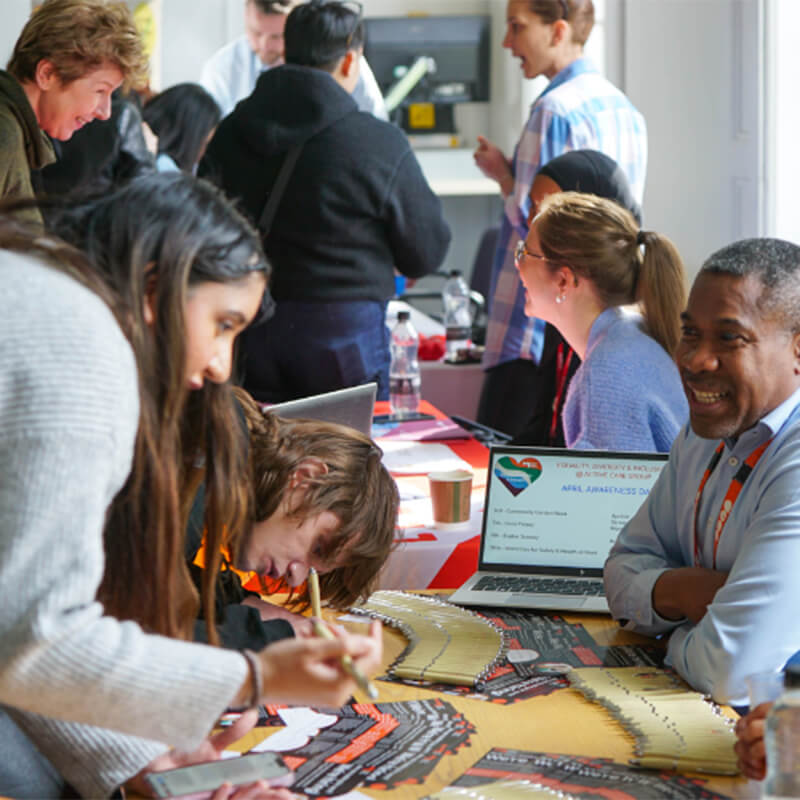
The Student Futures team is here to support you throughout your time at Roehampton and beyond.
They offer services tailored to your needs, helping you take confident steps towards your future.
You’ll have access to a wide range of career workshops and events, where you can engage with employers and develop the skills you need to succeed in the workplace.
These opportunities will help you build your CV, prepare for interviews, and connect with successful Roehampton graduates who are thriving in their careers. You’ll also be able to engage with our partners across London and beyond.
Wherever you want to go in the future, you'll be preparing for the world of work from your very first day.
Why did our past students study BA History and BA English Literature at the University of Roehampton?
“I've had the opportunity to participate in a variety of stimulating events, projects, and field excursions that have improved my academic performance. One memorable event was a visit to the Victoria and Albert Museum, where we were able to examine and analyse historical artifacts firsthand. This hands-on experience helped me to combine academic information with tangible historical objects, which aided my comprehension of various time periods.” - Fouzia Lahouid, BA History
“The reason why I chose to study English literature specifically at Roehampton was down to the teaching staff I met at the time and also the positive feedback I got on open days from other students. The best thing about studying at Roehampton was the support I had from amazing lecturers. Everyone was so approachable and I never felt that I couldn’t just go and knock on a door for help.” - Saara Ismail Mahomed, BA English Literature
Learning and assessment
How you'll learn
At Roehampton, you’ll explore, create, and question your way through History and English.
Learning here is interactive, lively, and rooted in real-world experience. You’ll join classes where discussions spark big ideas, debates challenge your assumptions, and workshops help you build practical skills.
You’ll learn by doing: analysing historical sources, diving into digital archives, creating vlogs and podcasts, visiting museums and heritage sites, and experimenting with creative responses to texts.
Throughout your degree, you’ll be supported by a close-knit academic community. You’ll have access to academic guidance tutors, friendly first-year support, wellbeing resources, and a programme that focuses on helping you grow in confidence. You’ll gradually develop independence as a thinker and researcher, especially as you build towards your final-year project, where you take full ownership of your work and ideas.
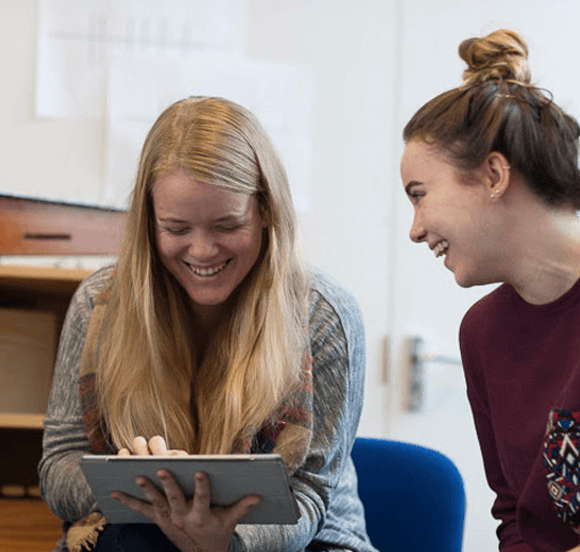
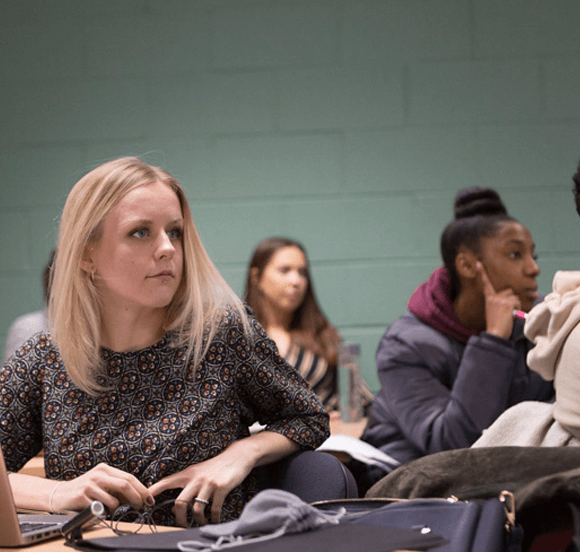
How you'll be assessed
Across the degree, your assessments are varied, engaging, and designed to match different strengths and career paths.
This means fewer traditional exams and more creative, meaningful projects.
You might be assessed through:
- Vlogs and digital storytelling projects
- Creative and critical portfolios
- Essays and close reading exercises
- Film and media analyses
- Investigative reports and case studies
- Presentations (with flexible alternatives available)
- Blogs, podcasts, and video essays
- Source commentaries and primary source analysis
- Legal briefings, research reviews, and academic writing tasks
- A final-year capstone project.
Open days
Get a real taste of our campus, community and what it’s like to study at Roehampton
Applying
Full-time UK undergraduate students apply through UCAS.
Course subject to curriculum enhancement and revalidation.
Entry tariff
112–128 UCAS points (or equivalent)
Foundation Year: 64–80 UCAS points (or equivalent)
Looking to work out your UCAS points or find out about our entry requirements? Find out more.
When we consider applications to study with us, we form a complete view of your achievements to date, and future potential, and can offer flexibility in entry requirements. Find out more about our Contextual Offer scheme.
General entry requirements
International undergraduate students apply through our direct application system.
Course subject to curriculum enhancement and revalidation.
Entry tariff
112–128 UCAS points (or equivalent)
International Foundation Pathway:
64 UCAS (or equivalent)
IELTS: 5.5
Looking to work out your UCAS points or find out about our entry requirements? Find out more.
When we consider applications to study with us, we form a complete view of your achievements to date, and future potential, and can offer flexibility in entry requirements. Find out more about our Contextual Offer scheme.
General entry requirements
Fees and funding
UK students
Tuition fees
| Entry date | Undergraduate Year 1 | Undergraduate Foundation Year |
|---|---|---|
| September 2026 | £9,790 | £5,914 |
Prices shown are for the first year of your degree.
Funding your studies
We also provide other ways to support the cost of living, including on-campus car parking, hardship support and some of the most affordable student accommodation and catering in London.
International students
Tuition fees
| Entry date | Undergraduate Year 1 | Undergraduate Foundation Year | International Foundation Pathway |
|---|---|---|---|
| September 2026 | £17,628 | £17,628 | £17,628 |
| January 2027 | – | – | £17,628 |
Prices shown are for the first year of your degree.
Funding your studies
We also provide other ways to support the cost of living, including on-campus car parking, hardship support and some of the most affordable student accommodation and catering in London.


